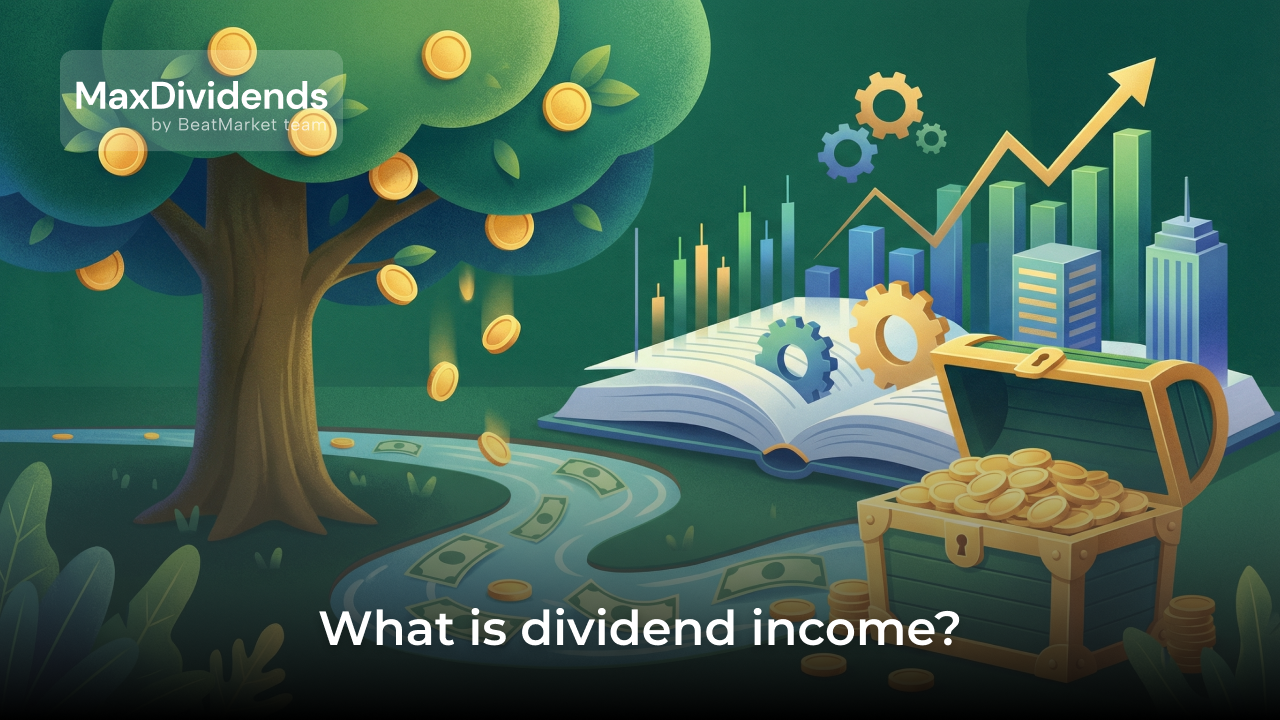Positive and normative economics are theories necessary for making strategic policy decisions. These approaches assess phenomena from different perspectives, complementing each other. When developing economic policy, it is important to understand the differences between them.
Below we define the concepts, explain how positive economics differs from normative economics, and discuss the importance of each theory.
Table of Contents
Key Takeaways
Key points on the topic to remember:
- The objectives of positive economics are to study and explain various phenomena on the basis of figures and facts that can be measured and cross-checked.
- The tasks of normative economics include setting ” the way it should be” guidelines, forming vectors of development by making value judgements. These tasks are solved with reliance on ideological norms, so the main characteristic of this theory is subjectivity.
- In order to conduct competent public policy, it is necessary to make decisions based on the postulates of both theories.
What is Positive Economics?
This approach to the study of economic phenomena was popularized by M. Friedman. Its key aim is to analyze objectively free of evaluations and bias.
The assertions of positive economics are based on figures and facts. All the test theories put forward can be confirmed or refuted by studying statistical data and historical examples. The key feature is that there is no approval/disapproval factor, no emotional coloring of the assertion. All the postulates proposed are neutral.
The aim of positive economics is to study and explain economic behavior as it exists rather than as it could be. It attempts to establish cause and effect relationships and behavioral associations between different variables rather than characterize them.
The main features possessed by the claims of positive economics are:
- Facts-based and measurable objectivity;
- Neutrality, lack of emotional coloring;
- Lack of calls to action.
An example of a positive economics claim: “By providing health care, the government increases its spending”. There is no indication here of how this phenomenon should be treated, whether it is positive or negative. There is no advice to strive for this state of affairs or, on the contrary, to avoid it.
The information given is only a statement of fact and can be verified on the basis of historical facts. In fact, whatever country the state has taken over the provision of health care, it has led to an increase in the budget burden.
What is Normative Economics?
Normative economics is a data system based on value judgements. It answers the question “how things are supposed to be done”, determining the desirability or undesirability of an action.
Its main tasks are to prescribe economic behavior and to make policy recommendations that will facilitate its achievement. This is done with different objectives, e.g:
- achieving economic development;
- incentivising investment projects;
- distributing wealth in a way that best suits the needs of society.
Normative economics is a theory that allows to work out a system of measures that ensure development along a vector chosen. Assertions put forward within the framework of this concept:
- have a rigid, prescriptive character;
- are future-oriented, i.e. reflect what “should be” rather than what is at the current moment;
- cannot be verified and proved, as they are based on moral norms and ideology;
- subjective, depending on the personal assessment and judgment of people who make decisions.
A. Sen, an economist, is the most famous follower of this theory.
Ethical principles, political ideology, etc. are taken as guidelines for making value judgements. The economic objectives sought by the followers of this approach are different. As a result, the recommendations they will make may be diametrically opposed.
To illustrate, one economist “believes” that income in society should be distributed more evenly. Therefore, a progressive taxation system would be recommended. Another is convinced that the most important thing is economic development, which would be facilitated by lower taxes.
Normative economics does not focus on the study of cause-and-effect relationships, but on the regulation and creation of a normative framework for economic processes.
What Is an Example of Normative Economics?
Here are examples of the kinds of claims that positive & normative economic theorists might make on various issues.
The first example is the level of minimum salary. From the point of view of positive economics, the impact of its increase on society is studied. That is, the result of the analysis would be the assertion that such a step:
- will improve the quality of life of low-salary workers;
- reduce the need for social security;
- stimulate consumer demand, and therefore contribute to economic growth;
- will increase costs, which can lead to higher prices, lower profits, and job losses.
For example, real-world studies in Seattle found that while the minimum wage went up, the minimum wage went down:
- amount of hours worked by low-paid staff;
- number of low-paid employees.
The decision whether to increase the minimum salary is based on the claims of normative economics, taking into account social aspects. In fact, the political debate on whether to increase labor remuneration is between normative economists rather than between representatives of different economic concepts (normative and positive).
Depending on their perspective, a normative economist might argue that the state should:
- Support low-salary workers and raise the minimum salary;
- fight inflation and prevent actions that could lead to price increases;
- support economic development and avoid creating conditions for the growth of business costs, etc.
Another example is the level of taxes. A potential argument given by a supporter of normative economic theory: “We need to increase the level of disposable population income, and this requires cutting taxes by half”. An argument given by a proponent of positive economics: “According to historical data, tax cuts increase the welfare of the population, but reduce budget revenues”.
Other examples of normative economics:
- child labour should be prohibited;
- the salaries of workers of different genders and races should be equal;
- excise duties on alcohol and tobacco should be increased to reduce their consumption;
- the government should ensure that the inflation rate is no higher than N per cent, etc.
The statements of positive economic theory are easily distinguished from the postulates of normative theory. They do not contain verbs “should” or “should not” or their analogues.
What Is a Positive Theoretical Statement?
A positive theoretical statement is an inference based on facts. It explains a phenomenon with no emotional coloring or value judgment. It is a statement that:
- is a hypothesis to be tested, not a call to action;
- does not depend on the political and social views of its author;
- does not indicate the positive or negative nature of the phenomenon.
Positive statements are essential to the study and development of various economic models and theories. They help to understand relationships and predict the outcomes of different actions.
An example of a positive statement is the law of demand-price relationship. In general terms, it states that if the price of a good rises, the demand for it falls. And vice versa, if the price goes down, demand goes up.
This statement does not give any indication as to whether the price should be lowered to stimulate demand or whether it should be raised. Making recommendations is not the goal of a positive one.
What’s the Difference Between Positive and Normative Economics?
The key parameters for comparing positive vs normative economics are summarized in the table.
| Factor/Approach | Positive | Normative |
| Assessment objectivity | Yes | No |
| Moral principles | No | Yes |
| Policy recommendations | No | Yes |
| Ability to explain relationships between different phenomena | Yes | No |
Positive & normative economic concepts pursue different goals, have different methodologies and objects of study. The first one analyses and explains facts, dealing with existing facts. The second one evaluates future results and serves for the formation of policy recommendations, i.e. it tells how things should be done in the future.
The nature of the claims made within these theories also differs. The statements of the positive approach are facts. The followers of the normative theory offer formulations of economic goals.
Meanwhile, positive & normative economics complement each other. No decisions would be possible unless one of them was present.
Based on the example of the minimum salary, it is clear that positive economics examines the facts and states that an increase in the income level of low-salary workers:
- improves their well-being;
- causes an increase in unemployment.
Normative economics makes a recommendation to raise the current minimum salary or to abandon this step. The judgment to be made will be based on what is currently more important for society – to maintain employment levels or to improve the quality of life of low-salary workers.
Is Positive Economics Better Than Normative Economics?
These concepts in economics serve different purposes. None of them can be abandoned. Therefore, it is incorrect to compare them in terms of best and worst. Both approaches have their strengths and weaknesses. At the same time, they complement each other.
Normative economics provides guidelines for action based on moral, social and political realities. But it could not exist independently of positive economics.
The latter provides the scientific basis upon which policy-making is impossible. Followers of this approach predict the economic behavior of society and individuals. Based on reliable figures, they predict the outcomes that an action will lead to. Normativist recommendations are based on this basis.
Why is Positive Economics Important?
Positive economics is important to society since this approach provides an objective, fact-based assessment. It serves as a basis for making decisions about whether to implement the ideas put forward by normative economists. With reliable data on how the financial system works, it is possible to predict what results an action will lead to.
Like any phenomenon, this theory has strengths and weaknesses. These are summarized in the table below.
| Advantages | Disadvantages |
| Ease of verification of the conclusions proposed | Risk of erroneous judgements due to the fact that people are not always able to separate facts from emotions |
| Providing reliable information on which to base decisions at the government level | The likelihood that relationships identified in the past will not work in the future for various reasons, such as changing social norms |
| Applicability in everyday life | Decisions made on the basis of the postulates of this theory affect people from different social classes in different ways |
Positive economics objectively assesses the realities of society. The theories put forward by the followers of this approach are the result of historical analyses of economic phenomena. Such theories make it possible to correctly perceive the current situation and make reasonable decisions.
Why is Normative Economics Important?
Normative economics sets the vector of further development. It is necessary for the development and adoption of decisions determining the course of society.
Positive economics is not a 100% exact science. But it is based on reliable facts, which are difficult to interpret in two ways. In contrast, normative economics can offer diametrically opposed solutions. The resulting debates give political leaders insight into the preferences of society.
The claims of normative economics are used to gather feedback. This can be obtained, for example, in the form of surveys. Based on their results, new ideas are generated that can bring the situation to the form expected by society.
The disadvantage of this approach to assessing the economic life of society is that it cannot be a unified basis for decision-making. One should rely on the conclusions of positive economics to understand whether it is possible to achieve the goal declared.
Another disadvantage is the large number of contradictions between supporters of this theory, with different political and social views. On the other hand, many experts call this freedom of choosing ideas a positive side of this approach.
Normative economics is the basis for the study of psychological and social economics. It is inextricably linked to behavioral theories.
Comparing Positive and Normative Economics
The approaches under consideration are based on different foundations. Positive economics operates with real data, while normative economics operates with ideas based on the personal opinion of an individual.
Comparison of these economic theories comes down to the opposition of objective vs subjective. Assertions made within the normative approach to economics do not necessarily need to be supported by real data. They act as a basis for innovative ideas and reforms.
The theories under consideration have no identical functions, each of them solves its own problem. Positive economics deals with cause and effect, describes existing relationships. Normative economics generates statements that may become reality in the future or remain unclaimed ideas.
One and the same phenomenon is considered by these theories from different sides. Such as, for example, interest rates. As a result of studying historical data, the positivist economist concludes that their decrease leads to an increase in investment. The normativist economist, on the basis of this postulate, may argue that rates should be lowered since the government should promote economic growth.
Through the co-operative use of positive & normative economics, allowing for a facts vs values comparison, and new ideas for development emerge. Each of these approaches in isolation will not be sufficient to shape fiscal policy.
FAQs
What are the government policy implications of positive vs. normative economics?
Positive economics is used to develop and test economic theories. It is a framework that describes the current situation and past experience. Normative economics is used to shape the goals and future financial policies of the government.
What are economic systems?
An economic system is a set of economic processes taking place in the world or in a particular country. Depending on the current principles and rules of production, distribution and consumption of material goods, there are several types of economic systems. These are traditional, planned, market and mixed economy.






